But What Will “Success” Look Like – And How Will It Impact Traditional Forms of Treatment?
In 2011, a New York Times headline claimed that a vaccine to prevent addiction was “tantalizingly close.”
Three years later, the vaccine has yet to arrive, but several recent reports indicate that the effort to develop it has made significant strides. And, as Lauren Biron reported in a May 20, 2014 article on The Week, this progress is changing how professionals think about addiction treatment – and about addiction itself:
Currently, there are injectable treatments in development for all of the so-called “Big Four” addictive substances: methamphetamine, nicotine, heroin, and cocaine addictions.
While individual vaccines vary, they all tend to work by training the immune system to produce antibodies as soon as the user’s drug of choice enters the body. In the untreated user, the tiny drug molecules would pass into the brain undetected and change the normal chemical transmissions between nerve cells, causing “highs” and other effects. In the vaccinated user, the immune system instead identifies the offending particles and binds them with large antibodies that keep them from interfering with receptors.
With enough antibodies on duty, all the incoming drug molecules are changed before they can cause any damage, eliminating the psychedelic effects and euphoria.
Biron’s article focuses primarily on the work of Kim Janda, the director of the Worm Institute for Research and Medicine at The Scripps Research Institute. For Janda, the creation of an addiction vaccine would be the culmination of an effort that began in 1984.
A Vaccine, Not a Cure
Of course, even if Janda or another researcher succeeds in developing a medication to block the effect of drugs such as heroin or cocaine, that doesn’t mean that addiction has been “cured.” As two experts discussed in a Sept. 20, 2013 article in New York Magazine, the biological component is just one aspect of the incredibly complex disease of addiction:
“That’s one of my concerns, that people will treat a vaccine as all they need,” says Jack Feinberg, a clinical director at Phoenix Houses of Florida, a top U.S rehab provider. He stresses he’s hopeful, but knows addicts “often have lots of other life issues that need resolving that fixing their drug addiction won’t help.”
Angela Garcia, a Stanford professor who studies addiction, agrees. “When a mouse no longer feels pleasure from a drug because of a vaccine, it doesn’t have the option of turning to another pleasure-producing substance,” she says. “But humans do.”
Relapse Prevention First
According to Dr. Ronald Crystal, chairman of genetic medicine at Weill Cornell Medical College, an addiction vaccine’s effectiveness, at least in the early stages, would likely be limited to relapse-prevention. Dr. Crystal, who has been involved in the effort to develop a cocaine vaccine, said that inoculating active users would likely be pursued after studying the vaccine’s effect on relapse prevention.
“The prevention of relapse is an easier challenge than trying to vaccinate people who are already on cocaine and actively using cocaine. If it does work, in terms of relapse, then we would move towards individuals when they are actively taking cocaine, and see if it works in them as well.” Dr. Crystal said in a May 20, 2014, interview with www.mdfm.com, an online medical radio site.
So the strategy will be to take individuals, who are cocaine abusers, who stopped using cocaine, then vaccinate them, and then follow them over time to determine whether or not they go back to using cocaine,” he said.
Limited Successes Thus Far
Of course, determining the best way to use an addiction vaccine is dependent upon the actual creation of an effective vaccine. And while progress continues to be made – results in tests conducted on rats have been promising — research indicates that success in humans has yet to be achieved.
In a May 6, 2014, article on the Baylor College of Medicine News website, Dipali Pathak described a test of a cocaine addiction vaccine that was conducted on 300 patients at six sites:
The group was randomized, and 152 received the active vaccine and 148 received the placebo. Both groups had equivalent baseline cocaine use, having smoked cocaine for an average of 13 days per month before treatment.
Notably, during the initial eight weeks before the antibody reached therapeutic levels, those ultimately attaining therapeutic antibody levels had more cocaine use than those on placebo or those who did not reach therapeutic antibody levels with the vaccine.
To be a part of the study, participants must have had two urine samples positive for cocaine two weeks prior to the study, indicating that they were regular users.
Study participants received the vaccine or the placebo five times – during the first, third, fifth, ninth, and thirteenth weeks of the study. They had at least 10 days between vaccinations, and were required to be at their test site three times each week for drug testing and self-reporting. Among the results that Pathak reported are the following:
- Of the 152 who received the active vaccine, 67 percent had antibody levels in the therapeutic range.
- The group who received the vaccine stayed in treatment longer than the placebo group, and three times more of them were able to attain at least two weeks of abstinence from cocaine use during the study.
- This difference in abstinence rates, however, was not statistically significant due to the relatively small number of patients who had sustained abstinence (about 10 percent).
Resources
As research toward the development of an addiction vaccine continues, here are eight accounts of progress and setbacks from the past five years:
- Doctors close in on vaccinations against heroin, cocaine, and meth: Anti-drug vaccines are shifting how we think about addiction (Lauren Biron, World Science Festival – via The Week – May 20, 2014)
- Pr. Ronald Crystal: A cocaine-vaccine to prevent relapse (Interview, MDFM.com, May 20, 2014)
- Cocaine vaccine makes significant strides but does not decrease overall cocaine use (Dipali Pathak, Baylor College of Medicine News, May 6, 2014)
- Measles, Mumps, Rubella, Cocaine: The tantalizing quest for an addiction vaccine (Clint Rainey,New York Magazine, Sept. 20, 2013)
- Focus On A Vaccine for Heroin Addiction (Scripps Research Institute, July 2013)
- Vaccine Halts Heroin Addiction in Rats (Shaunacy Ferro, Popular Science, May 7, 2013)
- New Vaccine May Immunize Addicts from Cocaine’s Pleasurable Effects (Katherine Harmon,Scientific American, Oct. 6, 2009)
- Will a Cocaine Vaccine Keep Addicts from Using? (John Lavitt, The Fix, Undated)













